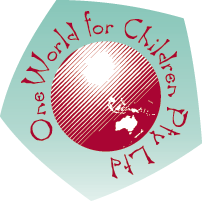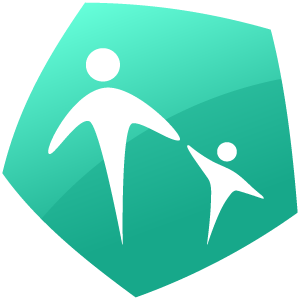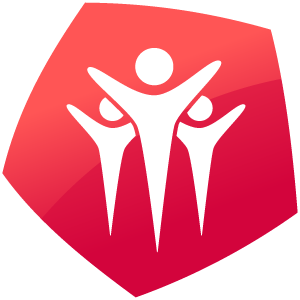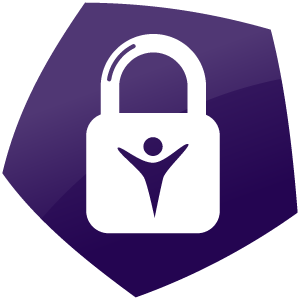Workshops/Inservices
Professional Support Program - Workshops Online
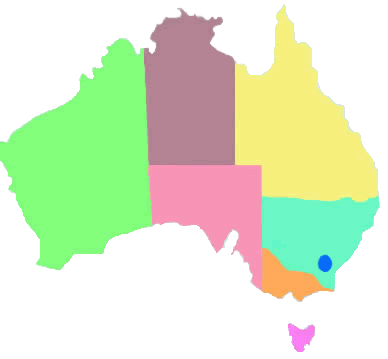
|
| Group | Title | Description | Session | ||||||||||||||||||||||||||||||||||||||||||||||||
|---|---|---|---|---|---|---|---|---|---|---|---|---|---|---|---|---|---|---|---|---|---|---|---|---|---|---|---|---|---|---|---|---|---|---|---|---|---|---|---|---|---|---|---|---|---|---|---|---|---|---|---|
| Development
| Attachment | When children feel safe and secure, they explore the world more fully, manage their emotions, build meaningful relationships and view the world in a generally positive light. Research shows that a secure attachment with a supportive, caring adult can help children cope effectively with many of life’s difficulties and challenges. This session will explore the importance of ensuring that children feel safe and secure, and how this will affect your services. Ideal for: ALL Child Care Workers Quality Area: 5 EYLF Outcome: 1,3 | |||||||||||||||||||||||||||||||||||||||||||||||||
| Development
| Building Children's Self Esteem | A quality program for children will invariably be linked to the way it nurtures and creates a positive sense of self for those within it. Building self esteem within a sensitive and authentic context is a necessary skill for educators. All development and learning will be influenced by how the child perceives themselves. Not only is it important that we allow children to see themselves as competent learners, but that they also see themselves as valuable members of the social group. In this interactive session we will examine how our relationships and our environments send important messages to children which in turn can build positive self esteem and develop a firm and wholehearted sense of belief in themselves. Learning Outcomes
Designed for: All educators. All service types Quality Area: 5 EYLF Outcome: 1 & 3 | |||||||||||||||||||||||||||||||||||||||||||||||||
Development

| Caring for and Nurturing Babies | Learn to listen to babies/infants cues and needs. Babies grow and learn faster than they will at any other stage of life, so what they do will be continually changing. Learn to listen and observe babies to truly give babies the opportunities to learn and do.
Join us to unravel the wonders of babies/infants..
Discover how you too can provide appropriate, stimulating learning environments for babies/infants.
Learning Outcomes
Designed for: Untrained Educators. All service types Quality Area: 2 EYLF Outcome: 1 & 3 | |||||||||||||||||||||||||||||||||||||||||||||||||
| Health and Safety, Leadership, Program Planning, Miscellaneous, Development
| Celebrating diversity in the team | Take a look at what culture is and ways we can define this, appropriate interactions and customs we must use , practicing patience, using humor, looking at differences from alternative perceptions, being prepared to make mistakes, learning to be an ally, getting to know individuals, listening to others stories, asking questions, making an overall effort and being sincere. Via identifying the needs of our culturally diverse co-workers and families, we can plan, ahead and gain an understanding of the importance of cultural consultation and support networks.
Learning Outcomes
Designed for: All educators. All service types Quality Area: 1, 4 & 7 EYLF Practices and Principles | |||||||||||||||||||||||||||||||||||||||||||||||||
| Health and Safety, Leadership, Program Planning, Miscellaneous, Development
| Conflict in the Workplace | Discover the common foundations built around conflict situations, why we can and do argue, difficulties we face when dealing with conflict and how we can personally adapt and accommodate this within our job role and responsibilities. Learn strategies and the utilisation of specific steps we can undertake when we are dealing with conflict and important elements we should and shouldn’t implement to ensure best possible outcomes and relationships within the workplace. Learning Outcomes
Designed for: All educators. All service types Quality Area: 4 & 7 EYLF Practices and Principles | |||||||||||||||||||||||||||||||||||||||||||||||||
| Development, EYLF
| Develop Confident and Involved Learners | This interactive session will examine the processes children use to develop understandings of themselves and their world and how children construct their own learning strategies. In a supportive learning environment children are given the opportunity to be responsible for their own learning, choices and contributions to their world. Through hands on active investigation children are able to develop strategies and nature of learning and are able to constantly build on and adapt what they learn to suit a variety of contexts and situations. This session will explore how early childhood educators can provide environments that instil a love of learning, support children’s learning styles and reinforce the value of hands on exploration and play in facilitating confident and involved learning. Participants will be encouraged to consider how children learn, and how through keen observation and documentation this learning can be made visible to children and families. Learning Outcomes
Designed for: All educators. All service types Quality Area: 1 & 5 EYLF Outcome: 4 | |||||||||||||||||||||||||||||||||||||||||||||||||
| Development, EYLF
| Documentation with Respect | The National Early Years Learning Framework for Australia has highlighted the importance of making learning visible via a variety of methods which collectively is referred to as documentation. This focus on documentation rather than “observation” has opened up possibilities to go deeper with examining the many ways children express their understandings and learning. Documentation includes expressing children’s own goals and describing much more than what is just seen. It brings the child to the centre of our curriculum where we look at the strengths and uniqueness of each individual as well as their learning within the social context.
The five key learning outcomes provide educators with key points of reference against which children’s progress can be documented and shared with children, families and other professionals. Respectful documentation is child centred, reflects children’s strengths and interests, and incorporates all relevant stakeholders in the reflection of learning that is occurring and has occurred within our settings. Educators who are interested in reflecting the EYLF, and developing their skills in noticing and writing respectful and meaningful documentation will benefit by attending this interactive session as we examine the possibilities of making children’s learning visible in our programs.
Learning Outcomes
Designed for: All educators. All service types Quality Area: 1 EYLF Outcome: 1, 2, 3, 4 & 5 | |||||||||||||||||||||||||||||||||||||||||||||||||
Program Planning, Development

| Engaging Learning Environments | When we thoughtfully and purposefully choose individual resources to construct rich learning environments the result is a place where children thrive as they play, learn and discover. Careful planning of the aesthetic environment will promote positivity about the environment and will consider the use of colour, light, design and space; a reflection of cultural heritage; and uncluttered space. Open-ended experiences including natural materials such as sand, water and mud as well as artefacts and tools that enable children to explore, investigate, problem solve and represent their understanding will feature in the engaging learning environment. Join us to explore how you can make your learning environments engaging too! Learning Outcomes
Designed for: All educators. All service types Quality Area: 1 & 3 EYLF Outcome: 4 & 5 | |||||||||||||||||||||||||||||||||||||||||||||||||
| Development
| Evolving Social and Emotional Development | Evolving Social and Emotional Development The key to any child's learning and development is explicitly linked to their self identity and picture of themselves as competent learners. What messages the environment sends on an emotional and social level can greatly effect this perception. As early childhood workers it is important to consider how our program can respond to this and provide opportunities for children to gain a positive self identity, competency and knowledge in order to reach their optimum potential. This interactive session will look at a socio-cultural perspective and its relationship to the evolving social and emotional development of the children from birth through to school age.
Ideal for: Qualified Child Care Workers Quality Area: 2 & 5 EYLF Outcome: 3 | |||||||||||||||||||||||||||||||||||||||||||||||||
| Program Planning, Miscellaneous, Development
| Exploring Art | Creating art is a fine way for children to make choices and solve problems. Every step involves deciding what colour to use, how to make a line, what size to make something. With every choice the object becomes more and more their own. Join this session to learn about the importance of creative arts and how to expose children to a variety of materials so that they can create art. Learning Outcomes
Designed for: All educators. All service types Quality Area: 1 EYLF Outcome: 4 & 5 | |||||||||||||||||||||||||||||||||||||||||||||||||
| Program Planning, Development
| Exploring the Outdoor Environment | This online workshop aims to highlight the intrinsic value of outdoor play whilst exploring a range of stimulating discussion topics. So if you're looking for some new ideas, and/or some help with a specific problem you're experiencing relating to the great outdoors, then get ready to 'get down and get dirty'! Come and join us explore the outdoor environment. Learning Outcomes
Designed for: All educators. All service types Quality Area: 3 EYLF Outcome: 4 & 5 | |||||||||||||||||||||||||||||||||||||||||||||||||
Development
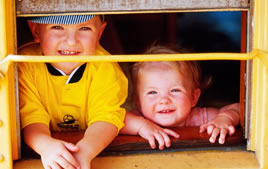
| Extending on Effective Interactions | Hopefully by now you would have had the opportunity to participate in the online program "Interacting effectively with Children ". This online workshop extends on interacting effectively with children, with an integral focus on collaborating with children's interests.
Learn to interact through another dimension, by learning some workplace strategies to ensure your interactions are effective and consistent.
Ideal for: Qualified Child Care Workers Quality Area: 5 EYLF Outcome: 1,2 | |||||||||||||||||||||||||||||||||||||||||||||||||
| Program Planning, Development
| Focusing on Over 3's | Children over three are a lot of fun! They often spend a lot of time watching
and exploring everything around them and enjoy hands on experiences. Come and join in this workshop to gain some useful ideas for promoting children’s responsibility, developing positive behaviour and planning fun and exciting experiences that will keep them motivated to learn and development as individuals! Ideal for:Trained Child Care Workers Quality Area:1 EYLF Outcome: 1,3 | |||||||||||||||||||||||||||||||||||||||||||||||||
| Program Planning, Development
| Focusing on Under 3's | Early childhood is a precious time in life. We have the joy of watching children discover and learn about the world around them. Under the age of three is a very busy time of increasing independence and curiosity. They learn through interactions with people, active exploration and movement. Through these they quickly develop confidence, skills and knowledge. It’s important to develop trusting and positive relationships with children so they can feel safe and secure on their journey through childhood. Positive guidance, communication and interactions are an important part of this process. Come and join in the voyage for some practical solutions and idea’s to working with children under three. Ideal for:Trained Child Care Workers Quality Area: 1 EYLF Outcome: 1,3 | |||||||||||||||||||||||||||||||||||||||||||||||||
| Program Planning, Development
| Forming Friendships - Peer and Play | Building relationships and learning about friendships is an important part of the early childhood experience for young children. As we acknowledge the importance of the social context on children’s healthy development, we can begin to appreciate the importance of planning and facilitating a wide range of experiences that encourage children’s interactions and connections to each other. What skills does the child need? How can we support a healthy view of friendship? This interactive workshop will explore how early childhood professionals can enhance and support children as they navigate their way through the friendship terrain. Ideal for:Trained Child Care Workers Quality Area: 2 EYLF Outcome: 1,2 | |||||||||||||||||||||||||||||||||||||||||||||||||
| Behaviour, Program Planning, Development
| Group Times Made Easy | Group times are a way of connecting children together be it formally in a planned group session, or spontaneously when the moment presents itself. This workshop will examine the purpose of bringing children together in groups and the power these times have on children’s overall development. Through these times spent together both caregiver and child build the bonds of a strong relationship to each other through sharing stories, songs, ideas and feelings. This interactive online session will inspire you to provide creative and wonderful group times for all children.
Learning Outcomes
Designed for: All educators. All service types Quality Area: 1 EYLF Outcome: 1, 4, 5 | |||||||||||||||||||||||||||||||||||||||||||||||||
| Program Planning, Development, NEW
| Intentional teaching - learning how | Intentional teaching is deliberate, purposeful and thoughtful! It cannot be confused with a theme based programming approach. Intentionality utilizes professional knowledge and strategies that reflect contemporary theories and research concerning children’s play, leisure and learning. Learn how to make use of spontaneous teachable moments which extend children’s learning! Learn how to comment on children’s displays of learning dispositions, by providing encouragement and additional ideas and support to children! Learning Outcomes
Designed for: All Qualified educators. All service types Quality area: 1 EYLF Outcome: 4 | |||||||||||||||||||||||||||||||||||||||||||||||||
Development
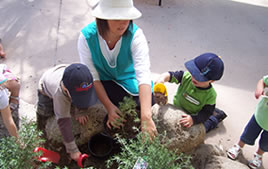
| Interacting Effectively with Children - Part 1 | Anyone can ''talk'' to children. But only a true advocate of children can communicate and interact effectively with children. Come along and rediscover communication strategies that will assist in effective interactions with all age groups of children. Learn how to promote positive behaviours by the way you interact with children.
Identify times when it is acceptable to stand back and listen to children. Above all, have the opportunity to discuss common strategies to further improve the way you interact effectively with children.
Ideal for: Untrained Child Care Workers Quality Area: 5 EYLF Outcome: 1,3 | |||||||||||||||||||||||||||||||||||||||||||||||||
| Program Planning, Development
| Keeping Children Challenged | One of the challenges that early childhood educators face is developing and implementing challenging and innovative programs that enhance children's curiosity and desire for learning. As many of the children we care for have been part of our services for much of their lives, it becomes increasingly necessary to find ways to extend and challenge their skills and abilities with a balance of familiar and new experiences. To do this, we need to consider children as capable of directing their own learning and work in real collaboration with them. By collaborating with children we are able to provide authentic learning experiences that will be both challenging and enriching. Samples of some approaches may be Reggio Emilia, Steiner, and the Project approach as well as many other models available for consideration. We are inviting you to join this interactive workshop where we will discuss the range of options we have for keeping children challenged through a collaborative approach as well as explore a range of early childhood programs that will enable us to take an eclectic approach to our programming taking in the best aspects of a wide range of options and integrating these with our own service requirements. Learning Outcomes
Designed for: All educators. All service types Quality Area: 1 & 3 EYLF Outcome 4 & 5 | |||||||||||||||||||||||||||||||||||||||||||||||||
| Leadership, Behaviour, Development
| Managing Children's Behaviour | There are no magic answers or secret remedies to make a child behave appropriately. There are however some techniques that will help to teach a child more acceptable behaviours. It is important that the educators involved with young children have the skills and knowledge to implement behaviour management techniques.
Managing challenging behaviours can be stressful on both educators and children alike. Join in this session and discover some practical techniques that will enhance your own strategies when dealing with challenging behaviours. Learning Outcomes
Ideal for: All Qualified/Trained educators Quality Area: 5 EYLF Outcome: 1,3,4 | |||||||||||||||||||||||||||||||||||||||||||||||||
| Program Planning, Miscellaneous, Development
| Music and Movement | Music and movement are inside each child. All caregivers do is let them out. That is good news for those of us who are not gifted in these areas. It tells us that all we need to do is encourage, not "teach" music and movement. In this online session, we will share some ideas that may help you "let the music out."
Ideal for: ALL Child Care Workers Quality Area: 1 EYLF Outcome: 4,5 | |||||||||||||||||||||||||||||||||||||||||||||||||
| Behaviour, Program Planning, Development
| New room - New ideas! | Children are born with the need to explore. They investigate their world through play. As facilitators of children’s play, educators must ensure that learning environments are designed and implemented to collaborate and engage children in meaningful play and exploration. Open your mind to creativity, imagination and resourcefulness; create aesthetically pleasing engaging environments for children of all ages. Learning Outcomes
Designed for: All educators. All service types Quality Area: 1 & 3 EYLF Outcome: 4 & 5 | |||||||||||||||||||||||||||||||||||||||||||||||||
| Program Planning, Development
| Open Ended Experiences | The provision of open-ended experiences acknowledges children as competent and capable learners who are able to direct their own learning and make meanings. Open-ended experiences include natural materials such as sand, water and mud as well as artefacts and tools that enable children to explore, investigate, problem solve and represent their understanding. This session will explore the value of open ended experiences, and what a positive impact this will make when developing a program for children. It will include many visual photographs of open ended experiences. Learning Outcomes
Designed for: All educators. All service types Quality Area: 1 EYLF Outcome: 4 & 5 | |||||||||||||||||||||||||||||||||||||||||||||||||
| Program Planning, Miscellaneous, Development
| Planning for an Anti-Bias Curriculum | Planning for an anti-bias curriculum, promotes positive attitudes towards diversity and to counter stereotypes and discrimination. It is evident that young children notice diversity, that they make evaluative judgements about differences and that they develop biases from a young age. Join the discussion in this session about the importance of planning and implementing an anti-bias curriculum. Learning Outcomes
Designed for: All educators. All service types Quality Area: 1 & 3 EYLF Outcome: 1, 3 & 6
| Development
| Recognising opportunity for Language and Literacy
| Early experiences with language establish parameters of interaction. Playing with sounds, words and meanings is an exciting part of developing language proficiency. In this session learn how you as educator promote language learning through: listening to children; engaging in conversations and creating language-rich environments. Learning Outcomes Designed for: All educators. All service types Quality Area: 1 EYLF Outcome: 1, 2 & 4
| Miscellaneous, Development
| School Readiness
| The transition from early childhood services to school can be a time of great stress for parents and children alike. Parents often look to early childhood professionals for advice. Alternatively, for some early childhood professionals it can be difficult to express differing views to parents when they feel a child is or is not ready for this transition. This session will examine the key indicators of school readiness and look at strategies for providing parents with the necessary information to make appropriate decisions about a child’s transition to school. Learning Outcomes Designed for: All educators. All service types Quality Area: 1 EYLF Outcome: 1,3,4 & 5
| Development
| Step Out of the Book
| Reading stories is both one of the simplest and quickest ways of establishing a happy relationship between the reader/teller and children.
The biggest difference between child audiences and adult audiences is that young children let you know immediately how you're doing. If you're not connecting with them, they squirm, interrupt, or get up and leave.
Come and find out how to plan a successful and enjoyable story time, where children settle into comfortable positions and gaze at you in rapt adoration. | Ideal for: ALL Child Care Workers Quality Area:1 EYLF Outcome: 4,5
| Program Planning, Development
| Supporting Children with Additional Needs
| Every child has the right to feel safe, secure and supported in their Early Childhood setting. By catering for individual children’s needs and by treating each child with respect, you are setting an example of inclusion. It is important that you have a strong understanding of each child’s interest, strengths and needs, so that you can provide a responsive curriculum and identify any areas requiring extra support and attention. This session is aimed to support the actions and attitudes that may be faced with situations of children with additional needs Learning Outcomes Designed for: All educators. All service types Quality Area: 1 & 3 EYLF Outcome: 1,2,3 &4
| Leadership, Behaviour, Miscellaneous, Development
| Supporting Children with Autism
| It may seem that more and more young children are now being diagnosed with an Autism Spectrum Disorder. Whether mild or high-functioning, children affected often find it difficult to communicate, both linguistically and socially, and have difficulty with imaginative play and flexibility. Children may also go through times of acute stress and experience ‘melt-downs’. | This session will outline the different kinds of Autism Spectrum Disorders, how to recognise symptoms and more importantly how to support both children and their families. Learning Outcomes Designed for: All educators. All service types Quality Area: 1,3 & 5 EYLF Outcome: 1,2 & 3
| Development
| Terrific Two's - Working with Toddlers
| Some carers associate 2-year-old children with tantrums, defiance, and getting into everything. But the 2-year-old is also in the midst of one of the most significant transitions in the human life cycle. This workshop provides a guide for carers to help them understand the nature and course of the child's development and behaviour at the 2-year-old stage and change this time into one of the most successful periods in the carer-child relationship.
| Ideal for: Untrained Child Care Workers Quality Area: 1 & 5 EYLF Outcome: 1,3,4
| Program Planning, Development
| The Inclusion of Children with Additional Needs
| Every child has the right to feel safe, secure and supported in their Early Childhood setting. By catering for individual children’s needs and by treating each child with respect, you are setting an example of inclusion. It is important that you have a strong understanding of each child’s interest, strengths and needs, so that you can provide a responsive curriculum and identify any areas requiring extra support and attention. This session is aimed to support the actions and attitudes that may be faced with situations of children with additional needs Learning Outcomes Designed for: All educators. All service types Quality Area: 1 & 3 EYLF Outcome: 1,2,3 &4
| Development
| The Value of Play Experiences
| A successful learning environment, recognises the value of play in the promotion of children’s learning and development. This session will look at both planned and spontaneous play experiences that look at the child in a holistic manner, which recognises the importance of creative and child-initiated play, to develop a child’s self esteem.
Play experiences that we will be focusing on, include the value of commonly planned experiences such as the value of play-dough; clay; drawing; painting; water play; home corner; books; puzzles, and whatever play experiences interest the enrolees.
| Ideal for:Trained Child Care Workers Quality Area: 1 EYLF Outcome: 1,2,3,4
| Development
| Understanding Infant Learning
| The period from birth to one year is a time when infants learn a great deal. Infants develop through the exploration of their senses of touch, smell, taste, sight and hearing to make sense of the world.
Re-discover the wonders of planning for infants; remembering that babies learn best by being given physical and emotional attention by carers to meet their individual needs.
Learn how to be imaginative in infant planning.
| Learning Outcomes Designed for: All Qualified and Trained educators. All service types Quality Area: 1 EYLF Outcome: 1,2,3 &4
| Health and Safety, Leadership, Program Planning, Miscellaneous, Development
| Working with Conflict Resolution
| Join other child care professionals to discuss practical information to assist in helping children to resolve their conflicts with each other. We will identify how conflicts can be the beginning of something new and good! By children talking, listening and working things out together, peace can be protected. | “It takes two to work together, but it also takes two to fight. And often, it only takes one to begin the first step towards a peaceful solution. (Scholes & Ingpen, 1989) Ideal for: ALL Child Care Workers Quality Area: 4 & 7 EYLF Outcome: 1,3,4
| Development
| Working with Pre-schoolers
|
Typically, four and five year olds are full or energy, eagerness and curiosity. During these years motor skills are being perfected and creativity and imagination come into everything, from dramatic play to artwork.< With extensive vocabulary, and the ability to express ideas, solve problems and think ahead, pre-schoolers have a strong sense of self and strive for independence. This session will give those who work with pre-school children, the opportunity to strengthen their knowledge and confidence across all the pre-schooler’s developmental domains, offering practical suggestions when working with pre-school aged children. Ideal for: Ideal for: ALL Child Care Workers. Quality Area:1 EYLF Outcome: 1,2,3,4,5
| Development
| Working within OSHC Programs
| Middle childhood is an important period when children develop a sense of who they are, what they can do and how others perceive them. It is a time when the focus of their daily lives is on school and their self esteem is closely tied to school success. Join this session to discuss characteristics of children during middle childhood,
to further help in your understanding of the children in your care. Come along
and discuss behaviour guidance strategies when working with school aged children;
as well as share ideas about exciting recreational environments. Ideal for: Untrained OSHC Child Care Workers Quality Area: 1 EYLF Outcome: 1,2,3,4,5
| |
